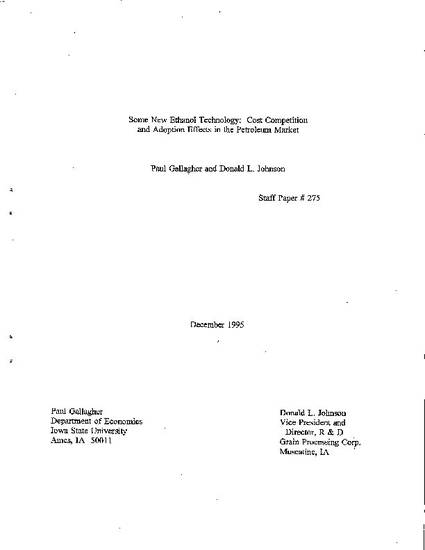
Article
Some New Ethanol Technology: Cost Competition and Adoption Effects in the Petroleum Market
Economic Staff Paper Series
Document Type
Report
Publication Date
12-1-1995
Number
275
Disciplines
Abstract
Growing dependence on imported oil has been a source of concern in the United States, despite potential consumer benefits from low cost imports. Much attention has focused on exposure to the instability of the world petroleum markets. Disadvantages that are associated with an embargo include incomplete adjustment with asset-fixity and unemployment (Tolly and Wilman, Broadman and Bruce). Offsetting use of policy instruments, such as import tax increases that reduce demand while acquiring strategic petroleum reserve (SPR), are effective at improving consumer welfare when embargo uncertainty is present (Teisburg, T.J.). Similarly, Yucell demonstrated the effectiveness of a combined gasoline tax and SPR. Others have examined the possibility that welfare would be higher with the optimum tariff in place (Bizer and Stuart).
Published As
This report is published in The Energy Journal, Vol. 20, No. 2 (1999), pp. 89-120
Citation Information
Paul Gallagher and Donald L. Johnson. "Some New Ethanol Technology: Cost Competition and Adoption Effects in the Petroleum Market" (1995) Available at: http://works.bepress.com/paul-gallagher/8/
